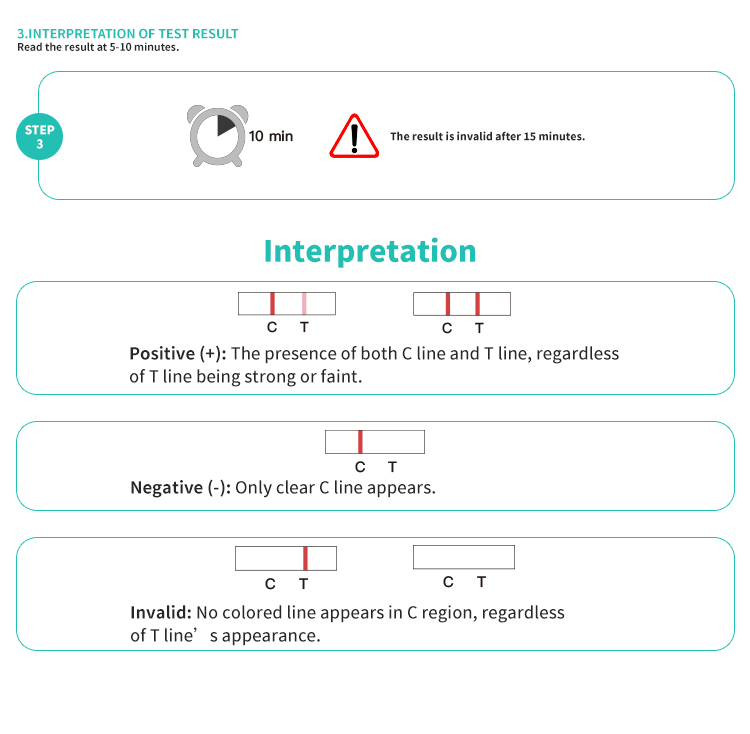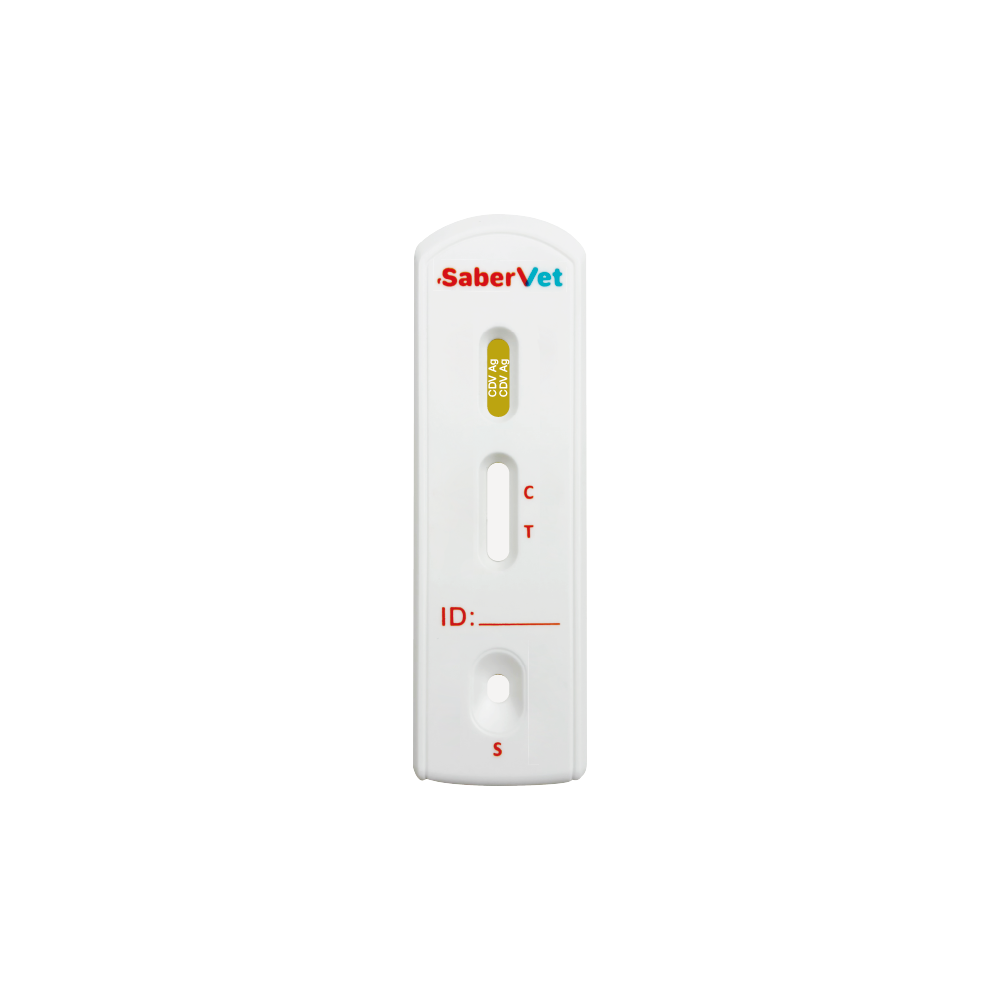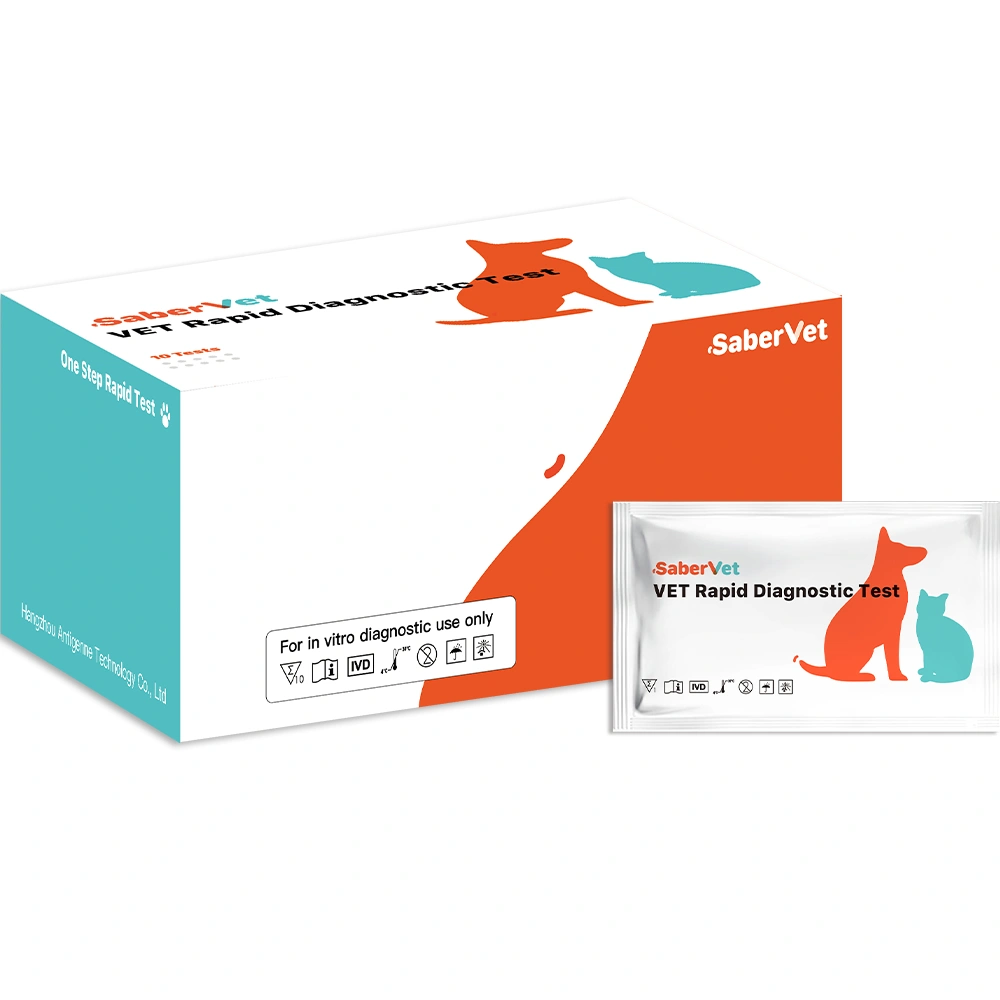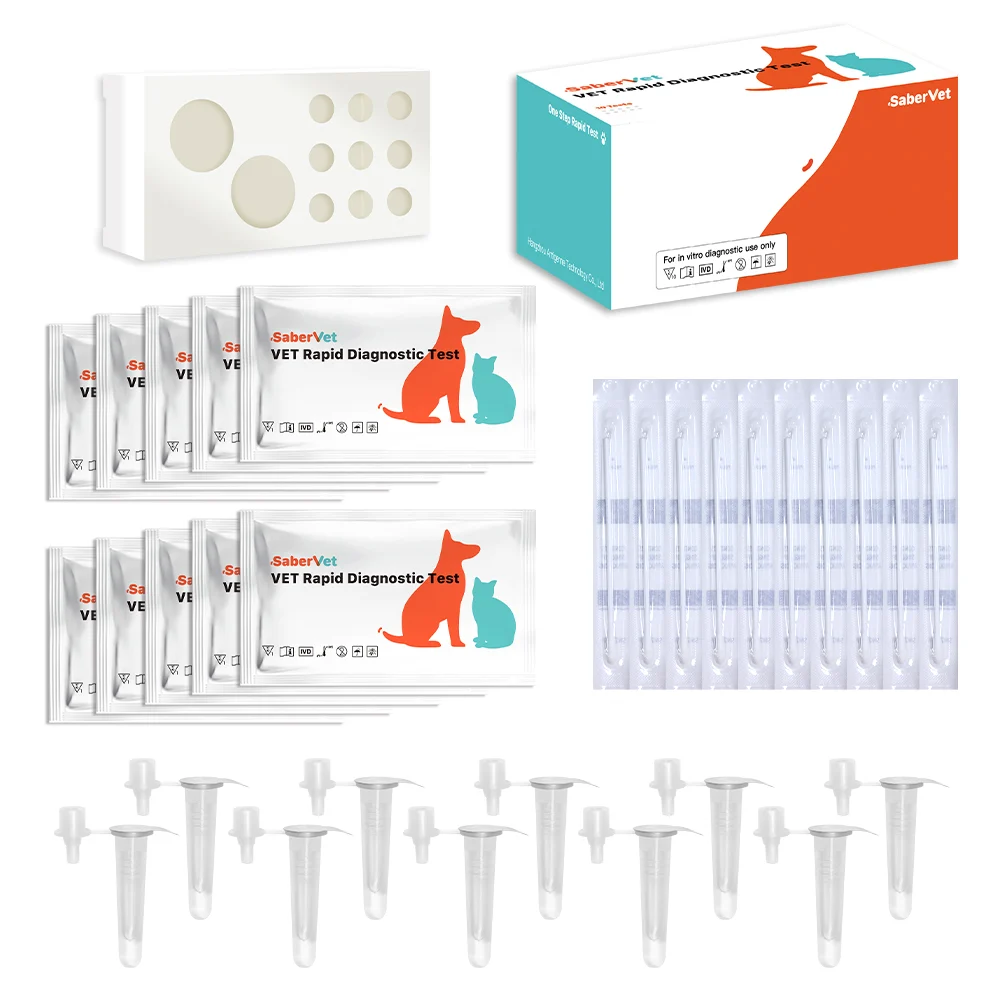Intended Use
Canine Distemper Virus Antigen Rapid Test is a lateral flflow immunoassay intended for the qualitative detection of specifific antigen from Canine Distemper virus (CDV) in eye,nasal flfluid or saliva sample. The test is useful for determination of CDV infection.Contents
| Component | 10T/Box |
| Test device | 10 piece |
| Swab | 10 piece |
| Buffer | 10 piece |
Specifications
| Product name | Canine Distemper Virus Antigen Rapid Test |
| Brand Name | Sabervet |
| Model Number | 1091012410 |
| Specimen | Secretions |
| Application | Vet Health Diagnosis |
| Sensitivity | 99.80% |
| Specificity | 97.69% |
| Certificate | GMP & ISO9001 & CE |
| Assay Time | 10 Minutes |
| OEM&ODM | Available |
| Shelf Life | 3 Years |
Operation
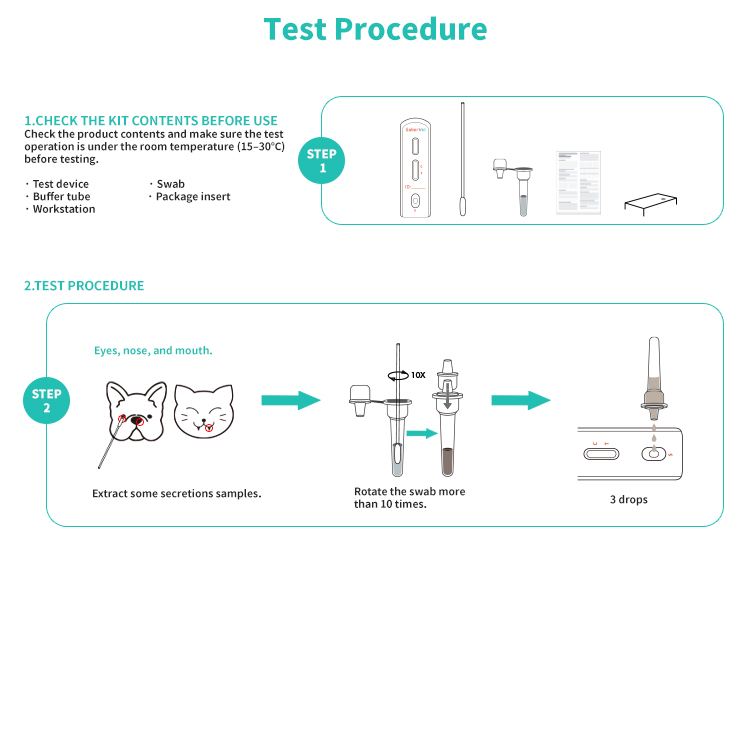
Results
